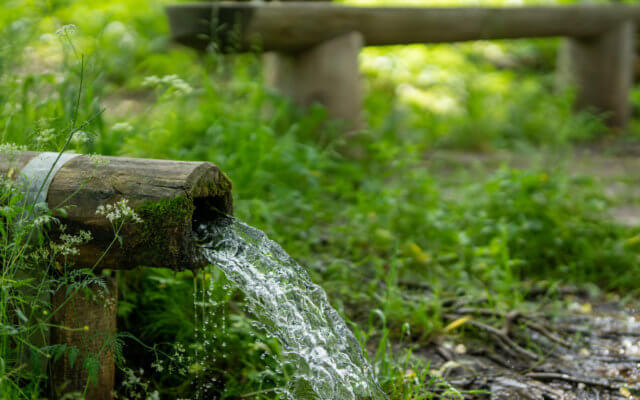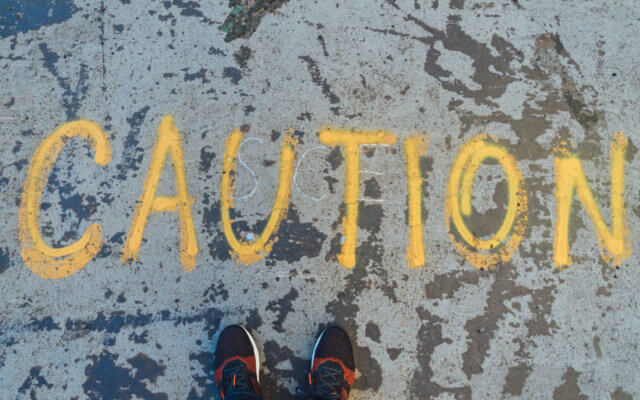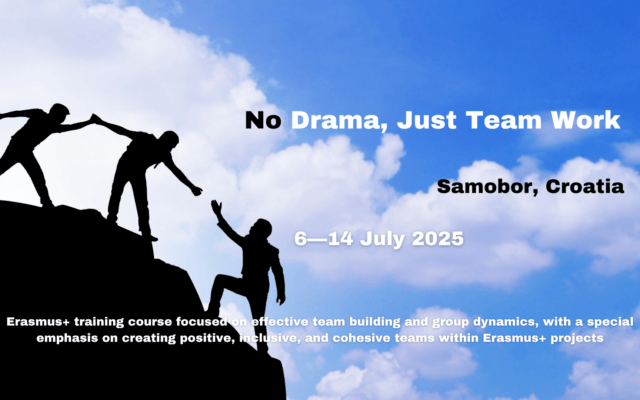ERASMUS+, Key action 1: youth exchange
Dates: 11—19 July 2025
Venue: Rabka-Zdrój, Poland
Czech team: 5 participants + 1 group leader
Please read the info-pack.
Hosting organisation: Europe4Youth
Project report:
A Czech, a Spaniard, a Hungarian, a Pakistani, and a Ugandan meet in a Polish basement. No, this isn’t the beginning of a joke – it’s the magical reality we experienced nearly every evening. In the tourist town of Rabka-Zdrój, full of parks and nature, young people from the Czech Republic, Poland, Hungary, Spain, and Romania gathered for a week to discuss not only the causes but also the consequences of radicalization. The Hungarian team once again included international students from the aforementioned Pakistan and Uganda.
A significant aspect of the project was the accommodation, which offered a large garden with a pool and an even larger house featuring a legendary party basement with a foosball table and, unfortunately, a non-functioning hot tub. There was also a common room with a ping-pong table, board games, and a piano. Nature lovers and runners also appreciated the scenic greenery and neat paths surrounding the resort.
We explored the topic of radicalization through non-formal education methods, such as moderated semi-structured debates or small group work followed by presentations to the whole group, with time for reflection and contemplation. Worth mentioning was the use of LARP (live action role-playing) elements. We learned that LARP can be divided into three types: chamber, Nordic, and Anglo-Saxon.
We first tried a chamber LARP, where we became teachers, parents, and students who needed to agree on the future direction of a school. However, the Nordic LARP was especially valued – it turned us into historical figures from the French Revolution of the 18th century. This LARP, with all its nuances, had a stronger emotional and subjective impact. We were divided into common citizens, noble aristocracy, and clergy. The commoners were treated with disrespect and disdain, which we, at a following reflection, linked to the topic of radicalization, as those who felt a deep sense of injustice were the ones most eager to demand a radical change in the system.
During the project, we were guided by three facilitators who were consistently kind, relaxed, and treated us as equals with respect. One Italian facilitator in particular excelled at using nonviolent communication naturally – a skill we also explored in one of the sessions. On the final evening, the facilitators, together with a wonderful cook, prepared a barbecue and campfire. By the flickering flames, the facilitators spoke openly about their lives and careers. They encouraged volunteering through the European Solidarity Corps, available to young people aged 18 to 30 for up to 12 months of their life.
The trip to Kraków was also well chosen, as we went on a Tuesday when museum admissions are free. This allowed us to see the rich collections of the National Museum in Kraków, the Czartoryski Museum, and the home of the famous Polish painter Jan Matejko. Among the classic attractions, we didn’t miss a walk through the Old Town, a climb up Wawel Hill, or a bite of a zapiekanka or obwarzanek.
At the end of the project, each participant received their newly earned Youthpass to applause on an improvised red carpet. This certificate can shine in our CVs, showing that we’ve experienced non-formal education – such as planning our own travel to and from the project, working and leading in a group, and presenting in English before an audience.
Even though we spent only a week together, and before it began we had no idea the other participants even existed, that didn’t stop us from shedding a few tears at the farewell and saying a temporary goodbye to the newly met and highly valued people. I look back with a smile on the Polish basement where all the cultures of the world mingled in a unique constellation that will never come together in quite the same way again.
Pavel D.


